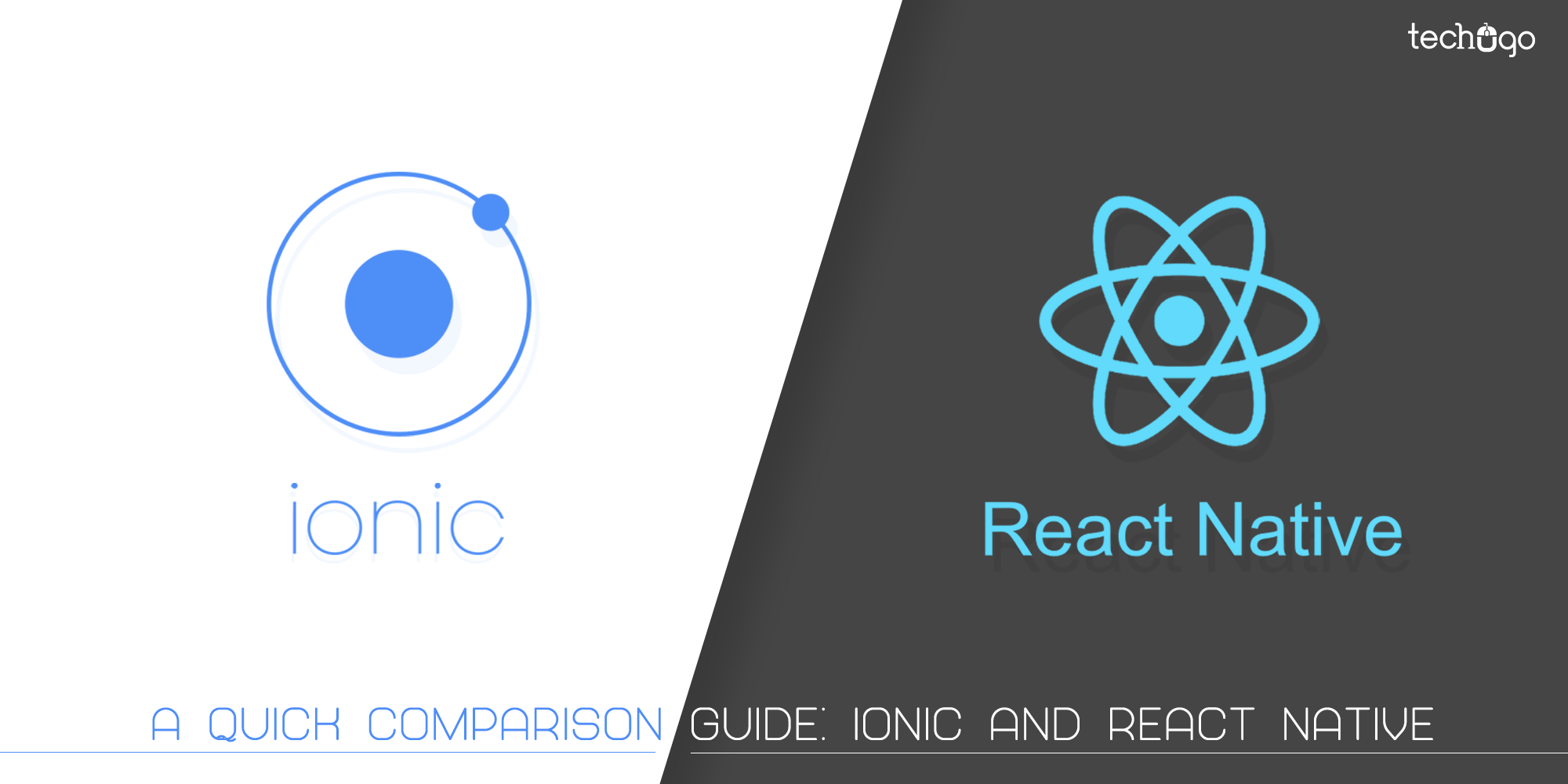Write Us
We are just a call away
[ LET’S TALK AI ]
X
Discover AI-
Powered Solutions
Get ready to explore cutting-edge AI technologies that can transform your workflow!


A lot many times, we sit confused between the development or no development of an app for our business, and when we make the final decision, which is obviously to proceed ahead with the app development, then the big rock stands in front of us that which technology platform is the better version for the high-performance mobile app?
Undeniably the high performance of the app, always remain as the main priority of the app owner and the developers as well, but the existence of many technological frameworks like Ionic, NativeScript, React Native, Xamarin, PhoneGap to name a few, increase the confusion battle further.
Hence in order to make you understand and evaluate the top 2 hybrid frameworks — Ionic and React Native, we are here today with this post.
Just read further…
What Is Ionic?
Being an open source cross-platform, the Ionic framework is the preferred choice for the developers to build the hybrid mobile apps, using the web technologies with the help of JavaScript and CSS. Also, the Ionic framework is based on HTML5, which can be used with Cordova or PhoneGap to build impeccable.
Pros
Cons
What Is React Native?
This framework has attained the users’ vote as it comes up with many advantages. React Native is thoroughly based on React, the JavaScript library, which is utilized further to develop the mobile apps with the native experience. The code reusability is the main attraction from this framework and being backed by the Facebook, it has much scope to receive further developments for the better app building process.
Pros
Cons
A Quick Comparison Between The React Native Vs Ionic
The Ionic and React Native are the two different set of frameworks, which both have their own specific advantages to be integrated within your mobile application. We have brought a quick comparison guide for you to understand the features of these two frameworks. Let’s read further…
Ionic gives the complete SDK to build hybrid apps, comparatively the goal of React Native is to promote “learn once, write anywhere” theory. The approach followed by both the technologies is different and unique. If you would look at the React native, then it follows the approach of reusing the codes effortlessly, whereas the Ionic technology is all about the web technologies.
React Native replicates the feel and look of the native app and utilizes the UI native factors so a much cleaner mobile app can come into existence.
However, the Ionic picks the web technologies to built multi-platforms apps, and it utilizes the minimum code base from the Angular technology, to help the users to experience a convenient and seamless app.
Undeniably the developers, who are willing to develop an app closer to the native app, pick the React native as the only choice. Albeit, the React native requires the developers to modify certain platform-specific components, in order to achieve the desired and a flawless app. It is a stable framework which is an ideal option for the larger app projects.
On the contrary, Ionic is the best option for the prototyping or for crafting the mobile apps instantly with a hybrid approach. This framework includes the CSS, HTML5 and JavaScript components for cross-platform app projects. It offers the mobile app to experience the expedite development process. But the click here is that in order to offer the app a native feel, certain flaws can be experienced, as the developers need to download several plug-ins to access the native features within the app.
React Native holds a huge variety of plug-ins and there is a wider as well, who constantly turns the app development process into an ease by offering the important information, updates, and solutions to solve the app development issues. Also, the plug-in can be further utilized for PhoneGap/Cordova, opening the access of mature plug-ins from the other communities.
Surprisingly, Ionic also offers an established and grown-up community, helping the development part to be accomplished with an ease. The ionic community also gives them access to a marketplace where people can sell and buy the plug-ins.
Both of these frameworks are based on cross-platform, which support the Android or iOS hassle free. However, Ionic 2 supports the Universal Windows Platform (UWP), which indeed offers huge benefits to the users when they get to use Ionic.
Which One Is The Ideal Choice?
Oops!!! After learning this much about these two frameworks and oodles of befits oozing from both, it is really a hard decision to be made.
I apologize if I have increased your tension level.
But don’t get panic, although both the technologies have their own specific set of benefits, allowing the users to experience the best, henceforth it is highly significant to understand that selection of any of these technologies largely based upon the requirements from the clients’ end, as these both platforms have their own specific set of qualities which can uplift any mobile app project completely.
But, you must be very well cautious about the selection of the right mobile app development company, to initiate your app development process, as this very step plays the vital role for the success of your business.
An experienced iphone application development company would give you their exposure and the experience to be included in your mobile app, consequently giving a better and seamless app experience to your end users. So just get in touch with a leading top mobile app development company and help your business to scale the heights of a success with an incredible mobile app solution fitting your business needs.
Write Us
sales@techugo.comOr fill this form